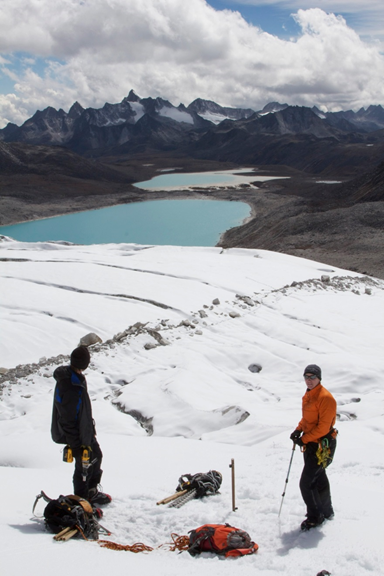 Scientists from around the world have assessed the planet’s 78 mountain glacier–based
water systems and, for the first time, ranked them in order of their importance to
adjacent lowland communities, as well as their vulnerability to future environmental
and socioeconomic changes. These systems, known as mountain water towers, store and
transport water via glaciers, snow packs, lakes and streams, thereby supplying invaluable
water resources to 1.9 billion people globally—roughly a quarter of the world’s population.
Scientists from around the world have assessed the planet’s 78 mountain glacier–based
water systems and, for the first time, ranked them in order of their importance to
adjacent lowland communities, as well as their vulnerability to future environmental
and socioeconomic changes. These systems, known as mountain water towers, store and
transport water via glaciers, snow packs, lakes and streams, thereby supplying invaluable
water resources to 1.9 billion people globally—roughly a quarter of the world’s population.
The research, published in the prestigious scientific journal Nature, provides evidence that global water towers are at risk, in many cases critically, due to the threats of climate change, growing populations, mismanagement of water resources, and other geopolitical factors. Further, the authors conclude that it is essential to develop international, mountain-specific conservation and climate change adaptation policies and strategies to safeguard both ecosystems and people downstream.
